Parisian measures to ease the lockdown
related to COVID-19 pandemic
****
May 25, 2020 version
Context
Since March 17, 2020 general lockdown has become the basic rule for everyone in France. The easing of
the confinement started gradually on May 11, 2020.The Mayor of Paris, in agreement with Parisian District
Mayors and representatives of all political parties has agreed on the following specific measures:
1- Protecting one another
Up to the time a vaccine and efficient treatments are found, the best protection against the virus remains
physical distancing and barrier gestures, as explained by health authorities,.
Face masks for citizens
The City of Paris has ordered from private companies 2.2 million cloth masks meeting the standards laid
down by health authorities —1 for each Parisian– washable and reusable from 10 to 20 times. The masks
are currently being manufactured, mainly in Paris and have been distributed since May 11 by pharmacists,
free of charge. By June, all Parisians will be able to collect their mask upon registration on paris.fr. Cloth
masks will be sent to the elderly and the disabled registered in the CHALEX file which has been set up by
the City of Paris to support and monitor the most vulnerable.
District Town Halls delivered, the week starting on May 11th, a first batch of 250,000 disposable face masks
targeting in priority people with chronic diseases, NGOs and merchants. The City of Paris has distributed
one million single-use masks in the Metro-RER network as part of a joint effort with the Parisian region
Prefecture, the SNCF and the Parisian Public transports RATP. Due to Paris high urban density, the mayor
has also asked the French government to make the use of face masks compulsory in the city.
Availability of hydro-alcoholic gel and soap in public areas
Hydro-alcoholic and soap dispensers will be made available in shops and in the public facilities and
spaces managed by public transports operators. Special attention will be paid to support local production.
Since May 11, JCDecaux Company has equipped 1500 bus shelters (3 out of 4) and all 435 toilets with hydroalcoholic
gel dispensers.
The city of Paris is also working on other projects, with Eau de Paris to equip drinking water fountains with
soap.
Testing
Testing campaign which have primarily targeted workers and residents of the City medicalized nursing
homes (EHPAD), has been extended to municipal workers on the frontline. Since May 5, all city staff is
able to book virus tests. Priority is given to workers with symptoms, childcare and school staff, and workers
in public facilities or spaces who interact with the general public. Testing will also be offered to parents of
pupils in schools on the basis of the epidemiological data collected on the virus circulation in Paris. Testing
is intended to be extended to all Parisian schools.
In view of this, “PCR” tests have been ordered. Several locations are already up and working, like Hôtel-
Dieu Hospital, which tests daily up to 400 people, and Rothschild Hospital (in the 19th district), where a
“test-drive-in” has been set up. The City has also pre-ordered 150.000 serological tests, awaiting certification.
Finally, Paris public Hospitals in association with the city are currently mapping the City to massively
test and prevent new clusters in neighborhoods more impacted by the virus.
Adapted rooms in hotels made available to the infected
The City of Paris jointly with a group of stakeholders (Parisian Public Hospitals (AP-HP), city physicians,
ACCOR Company) has launched the “COVISAN” project. Specially adapted rooms in hotels near Hospitals
are made available to those infected by COVID-19 rooms are made available for to two weeks to
communities’ contagious people, so as to protect their families and communities. They also benefit from
an appropriate medical follow-up.
Educate the youngest
The city of Paris and UNICEF France have launched #coranastop a set of videos on line with various artists
raising awareness on barrier gestures among young people. All videos are available on the City of Paris
YouTube channel.
2- Easing the City confinement
Reopening of schools
On May 11 schools staff returned to school facilities, and by May 14 welcomed pupils whose parents were
agreeing to it, up to the quota established for each facility so that it can comply with recommended health
protocols On May 14, 92% of Parisian kindergarten and elementary schools reopened.
Three groups of pupils will be given priority in order to slowly ease the lockdown in accordance with
social, pedagogical and economic goals.
- Pupils whose parents are professionals fighting COVID-19 on the front-line, managing the
health crisis, or working in a sector instrumental to the easing of the lockdown, such as health
workers, fire fighters, police officers, social workers, teachers, city staff and RATP public transport
workers and SNCF staff. These pupils attend full time.
- Priority is also given to Parisian pupils in last year of kindergarten, first-grade and last-grade of
primary school.
- In the same way, it is suggested to pupils from families particularly at risk from a social, educational
or general vulnerability standpoint to attend: these are children with disabilities, under
the supervision of social services, unable to study at home or at risk of dropping out, with special
concern for schools in deprived areas.
These children attend in small groups of less than 15 pupils usually limited to 10-12 in primary schools
and fewer than 10 in kindergarten. It is estimated that 15% of the children will be thus reintegrated.
Overall about 15% of pupils will have attended elementary schools during the first two weeks which represents
about 20,000 children out of a total of 130,000.
By the end of May the situation and operating conditions of schools will be assessed. Based on the findings,
other families will gradually be offered the opportunity to send their children to schools.
Municipal services are fully focused on cleaning Parisian schools, setting up in every school kits of hydroalcoholic
gel dispensers and face masks provided by the Ministry of Education and the City of Paris, and
reorganizing classrooms with floor markings to implement physical distancing.
The city of Paris will test all municipal staff interacting directly with schools (around 800 facilities).
For further protection, peripheral measures will be enforced like banning road traffic in some areas at pupils’
arrival time and limiting the size of gatherings in front of schools to avoid crowding.
230 children care centers will open again with a capacity for 4,500 children representing about 20 to 25%
of the total capacity.
Mobility
As requested by the City of Paris, face masks are mandatory for those using public transports and hydro-
alcoholic gel is provided in all metro stations. This is implemented under city supervision at bus and
tram stops and in the stations of the city wide bike sharing system as well.
After the lockdown, the city of Paris in association with the State and the Parisian region plans to shadow
with bike lanes the routes of 1, 4 and 14 metro lines to prevent an intensive surge in car use, reduce
emissions that could worsen the health crisis and limit commuters in metros,. A plan for seamless connection
between Paris bike lanes and out the cycling facilities being set up in suburbs is being worked out.
Since May 11, 50 km of Parisian roads are devoted to biking. In addition to the axial Rue de Rivoli, new
biking roads will include Avenue du general Leclerc, Boulevard Saint-Michel, Etoile tunnel and Porte Maillot.
They complement the already 1,400km of existing bike lanes in the French capital. New parking slots
connected to the bike lane network are made available to holders of public transport passes (Navigo) in
existing parking facilities and areas, adding 2,000 slots over 30 locations in Paris outskirts.
Sidewalks have been widened and some thirty streets have been made pedestrian to prevent crowding,
particularly in the vicinity of schools, railway stations and major commercial areas like les Halles.
Outdoor facilities
On May 11, the Prefecture of Police, in agreement with the City of Paris, has granted access to some public
areas — the right and left banks of the river Seine, the Vincennes and Boulogne woods, the lawns of the
Esplanade des Invalides and the Champ-de-Mars–. Individual physical activities are now allowed at any
time in Paris.
The Mayor has also requested the reopening of the City parks and gardens, for walks only and making the
wearing of masks mandatory. The Government has not given its approval yet.
Wakes and funerals are limited to 20 people in Parisian Cemeteries. Visits to family graves are allowed in
the mornings and all day on Sundays.
Parisian woods are re-opened since May 11th. A proposition has been made to have all parks and gardens
open with a gradually increasing quota of visitors. Initially, playgrounds would remain closed.
Summertime and its share of usual celebrations are almost there, Paris Plages will be maintained “in a
lighter form”
3- For the most vulnerable people
In the city of Paris, several measures have been set up to meet the specific needs of the most vulnerable
people (isolated and fragile elderlies, low-income families, persons with disabilities, students and social
housing tenants). These specific measures are detailed on pages 4 and 5 of «Measures to contain the spreading pandemic
of COVID-19 ».
To reinforce solidarity, Paris supports NGOs by providing financial assistance to 53 NGOs located in 7 districts
designated as low-income neighborhoods under the City Urban Policy, to 67 NGOs offering 79 transitional
jobs to jobseekers in working-class neighborhoods, to 17 NGOs taking part in Ville Vie Vacances, a
summer program for the year 2020, and to 31 NGOs fighting violence against women. On May 18, the City
council granted an exceptional aid to Parisian poorest families and free access to temporary pools set up
in sport facilities this summer.
4- For Parisian residents and private businesses
During the City council of May 18, a general plan of € 200 M was voted to support private businesses, cultural
operators and NGOs. With regard to economic operators, the following specific measures were
agreed:
– Waiving of commercial rents charged by the City’s real estate holdings to VSB and NGOs (€75 M).
For other economic actors, commercial rents will be frozen for up to six months, depending on the
impact of the crisis on their turnover.
– Miscellaneous municipal taxes will be waived for six months (terrace and road, street vendors, nonhouseholds
waste, markets, fleamarkets, taxis) (€40 M).
– Investment subsidies in favor of shops, artisans, cultural business companies, young innovative enterprises
(€6 M)
– A support scheme targeting the tourism sector(€5 M)
– Financial support to social businesses (€4 M)
The City will also allow shops and artisans to use outdoor spaces to comply with physical distancing guidelines
and expand their operating areas or terraces. They will receive a methodological and logistics tactical
kit to assist with the reopening of shops. Restaurant and café owners will also be able to extend their ter4
races free of charge until September by taking over parking spaces on the kerbside or using the available
space in front of shop windows. The Mayor also wishes to increase acess to the City’s public tenders, by
promoting a Parisian Small Business Act designed to ensure that by 2025 9 out of 10 City providers of services
are VSE/SMEs.
To support Parisian economic operators the city of Paris has listed an interactive map on Paris.fr displaying
the home delivery system proposed by 900 small businesses. It is also possible to shop on line for
food from the capital’s 9 food market halls and have the groceries delivered at home or picked up on site.
From May 12, food markets and opened markets have re-opened and enforced physical distancing
guidelines. In the French capital, shopping centers and department stores of over 40.000m², restaurants,
bars, movie theaters, artistic venues (concert halls, theaters), enclosed sport facilities, swimming pools, City
and multipurpose halls will remain closed.
5- For culture and NGOs
For cultural activities, a 4-step plan has been announced to gradually re-open Parisian cultural venues:
- Starting May 11, theaters, museums and major Parisian cultural venues will be adapted to adjust to
the new health guidelines ;
- By mid-June Parisian Museums will open partially, granting access to some of the rooms and collections
to groups of 10 people;
- By July, some parks and gardens will gradually reopen , one district after another and offer opportunities
to watch theater, play music or listen to readings;
- « August, Month of culture» a new event organized in partnership with local authorities of Greater
Paris Metropole and the Off festival in Avignon, will draw from a dedicated €500,000 endowment
to commission creative pieces from to be performed in front of very large audiences in redesigned
public setting (concerts, dance, movies, shows, in parks, gardens and small squares in Paris).
On May 18, the Mayor of Paris presented to the council of Paris an endowment fund of 15 million of euros
to support the city cultural entities in accordance with their needs. This budget includes: €12 M for cultural
venues and operators supported by the city and most affected by the crisis, €1.4 M for the movie
industry including €300,000 for independent movies, €500,000 for the national center for Music,
€700 000 for the emergency fund for live performing arts (theater, street art, circus) and €50.000 for
the emergency solidarity fund of the Author and Composer Guild SACD.
Paris has teamed up with the Ministry of Culture to create on an exceptional and temporary basis an
emergency fund for live performing arts, so as to provide show businesses with emergency aids as
they are greatly weakened by COVID-19 pandemic, having been forced to cancel all performances since
March 14.
From the beginning of the sanitary crisis, the City decided to speed up the release of subventions to NGOs
in order to preserve their cash position. The City also plans to create an endowment fund of 10 million for
the NGOs it supports. On May 18, a financial aid was also granted to several NGOs working in social welfare
(see point 3 “Supporting the most vulnerable”).
6- To promote citizen participation and democratic commitment
The great number of people willing to help and contribute since the beginning of the current health crisis,
has led the city to design a program for city volunteers, “volontaires de Paris”. When it is finalized this
program will accompany those wishing to volunteer in Paris and provide them with proper training. An
ambitious civic service recruitment program will also be implemented to provide Parisian youth with a
foremost opportunity to contribute and be involved.
A citizens’ assembly will complete the existing participatory program in order to promote stronger participation
of Parisians in the decision-making process affecting them. This approach is in line with the citizens’
municipal council.



![PARIS [Coronavirus: measures taken by the City]](https://capitalsinitiative.com/wp-content/uploads/thumbs_dir/PARIS-1wfuymjl77ip7v0dlns77klymamxmtc791b1kw7ztqqs.jpg)
